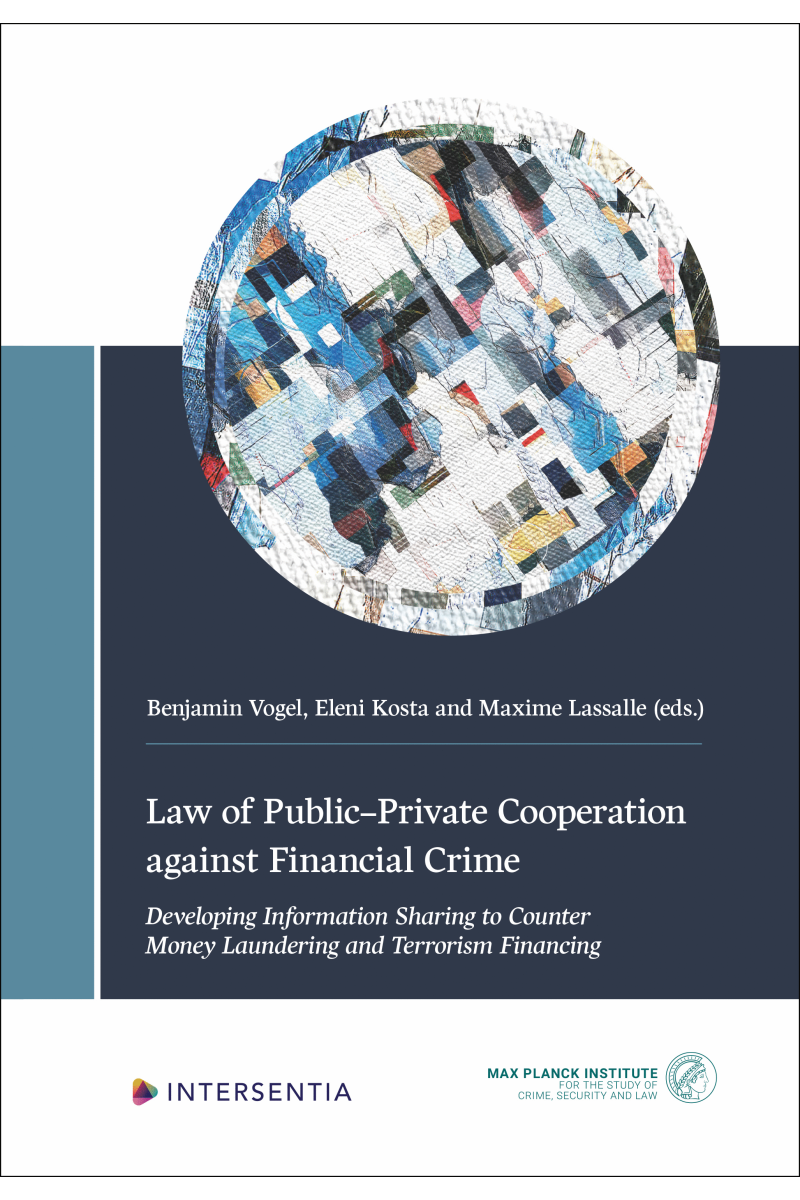 maestro
mastercard
visa
maestro
mastercard
visa

Law of Public-Private Cooperation against Financial Crime
Developing Information Sharing to Counter Money Laundering and Terrorism Financing

For several decades, banks and other financial service providers have been required to monitor the activities of their customers in order to detect and prevent crime. This ‘delegated law enforcement’ has yielded some success, but its practical limits have become glaringly apparent, as the private sector is struggling to effectively perform this task. There is, therefore, growing international consensus that closer public–private cooperation is needed. This will require government authorities to share relevant information with the private sector on a regular basis, to facilitate the detection of criminal abuse of financial services.
However, such cooperation raises profound fundamental rights concerns, because it can put the separation between the public and private spheres—a central paradigm of the rule of law—into question. A pioneering work in a subject that remains largely unaddressed by law and academic debate, the present study brings together the findings of an EU-funded project that developed recommendations for a legal framework for public–private information sharing to prevent, detect and investigate financial crime.
To this end, the book explores the foundations of public–private cooperation against financial crime by adopting a pan-European and interdisciplinary approach. It brings together a comparative analysis of public–private cooperation in criminal procedure law and anti-money laundering law in France, Germany, Italy and Spain; an analysis of the practical design and law of innovative information-sharing mechanisms in the Netherlands and the United Kingdom; an in-depth study of the relevant EU data protection framework; an inquiry into the impact of automated methods of data processing on the applicable legal requirements; an analysis of financial information sharing between the EU and the USA; and a socio-legal study of the practical challenges encountered in public–private cooperation. These various findings are brought together to explain how legislators, competent authorities and the private sector can strengthen public–private cooperation to advance the fight against financial crime and ensure respect for fundamental rights. The recommendations are especially relevant in light of the EU’s recently adopted Framework on Anti-Money Laundering and Countering the Financing of Terrorism, which introduces ‘partnerships for information sharing’ as a new key tool for initiatives addressing financial crime and, in doing so, encourages the participation of competent authorities in such partnerships.
About the editors
Benjamin Vogel is a Senior Researcher at the Max Planck Institute for the Study of Crime, Security and Law, where he leads research on European anti-money laundering and counter-financing of terrorism law and policy.
Eleni Kosta is a Full Professor of Technology Law and Human Rights at the Tilburg Institute for Law, Technology and Society (TILT-Tilburg University, the Netherlands). Eleni also collaborates as an associate with the Brussels-based law firm timelex.
Maxime Lassalle is an Associate Professor of Private Law and Criminal Sciences at the University of Burgundy (France). He was previously a postdoctoral researcher at the Max Planck Institute for the Study of Crime, Security and Law (Germany).
List of contributors
With contributions by Lorena Bachmaier Winter, Magdalena Brewczyńska, Silvia De Conca, Jonathan Fisher, Giulia Lasagni, Eleni Kosta, Nandor Knust, Maxime Lassalle, Aaron Martin, Manos Roussos, Bart van der Sloot and Benjamin Vogel.
Digital version available on :
- Strada lex Belgium
- Strada lex Europa
You have a subscription? Activate the digital version for free with the code in the book.
| Type of product | Book |
|---|---|
| Format | Paperback |
| EAN / ISSN | 9781839705519 / 9781839704666 |
| Weight | 1310 g |
| Status | Available |
| Number of pages | 760 p. |
| Access to exercice | No |
| Publisher | Larcier |
| Language | English |
| Publication Date | Dec 10, 2024 |
| Available on Strada Belgique | Yes |
| Available on Strada Europe | Yes |
| Available on Strada Luxembourg | No |
Downloads
- Table of contents and preliminary pages
- Chapter 1. Introduction
Benjamin Vogel - Chapter 2. Financial Public–Private Partnerships in the Netherlands
Eleni Kosta, Magdalena Brewczyńska, Bart van der Sloot - Chapter 3. The Joint Money Laundering Intelligence Taskforce in the United Kingdom: A Critique of an Emerging Model for a Public–Private Information-Sharing Partnership in the Fight against Money Laundering and Terrorist Financing
Jonathan Fisher - Chapter 4. Socio-Legal Foundations of Public–Private Partnerships in the System of Crime Control
Nandor Knust - Chapter 5. Interaction between the State and Private Actors in the Detection and Investigation of Crime in France
Maxime Lassalle - Chapter 6. Private Parties’ Contribution to the Detection and Investigation of Crime under German Law
Benjamin Vogel - Chapter 7. Public–Private Cooperation in the Detection and Investigation of Criminal Offences in Italy
Giulia Lasagni - Chapter 8. Public–Private Collaboration in Criminal Law Enforcement in Spain: Involvement of Private Actors in the Detection and Investigation of Crimes
Lorena Bachmaier Winter - Chapter 9. The EU Data Protection Framework
Magdalena Brewczyńska, Eleni Kosta - Chapter 10. How Technology and Law Interact to Combat Financial Crime
Aaron Martin, Silvia De Conca, Eleni Kosta, Manos Roussos - Chapter 11. Transnational Public–Private Cooperation in a Repressive Context: Understanding the Legal Framework for EU–US Transfers of Financial Data
Maxime Lassalle - Chapter 12. Developing Public–Private Information Sharing to Strengthen the Fight against Money Laundering and Terrorism Financing: Recommendations for the European Union and its Member States
Benjamin Vogel, Maxime Lassalle - Annex to Report on the EU Data Protection Framework
Magdalena Brewczyńska, Eleni Kosta